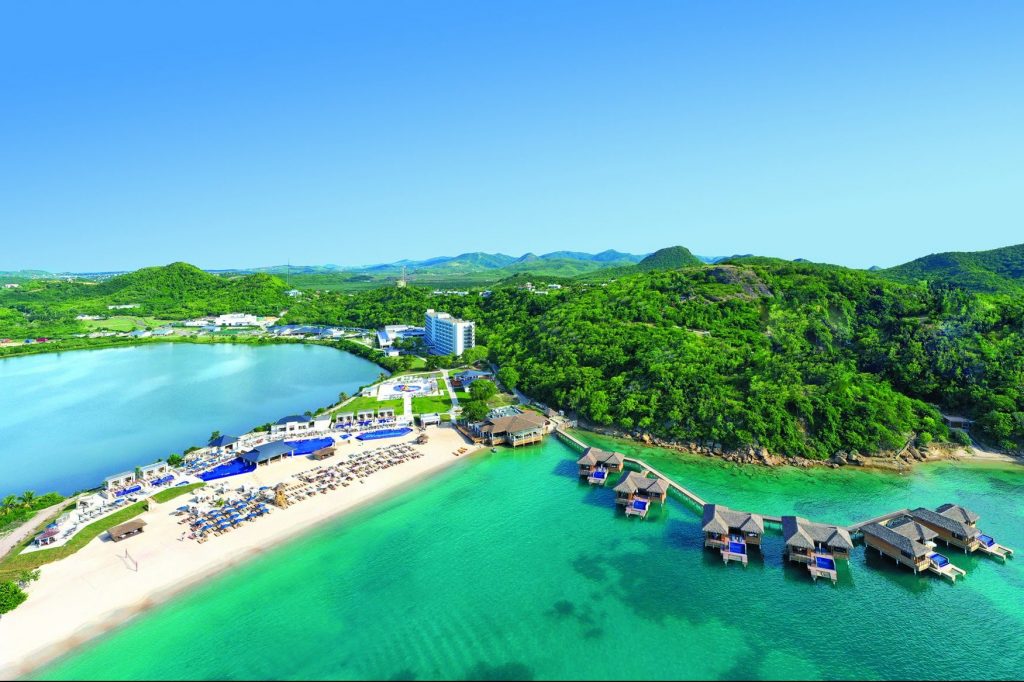Skift Take
Global hotel companies like Marriott have to pursue business where they can find it during the pandemic recovery. That's a major reason to build out more all-inclusive resorts.
The world’s largest hotel company Tuesday throttled forward its expansion into the all-inclusive resort sector, yet another reminder leisure travel will remain a dominant force in the hotel industry’s pandemic recovery.
Marriott plans to add 19 all-inclusive resorts across Central America and the Caribbean to its Autograph Collection of hotels. The properties, owned by Toronto-based Sunwing Travel Group’s hotel division, would triple Marriott’s current nine-property all-inclusive division, which was only announced in 2019.
While Marriott may have lagged some of its rivals before entering the all-inclusive resort space for the first time nearly two years ago, its latest deal positions the company to better handle another form of leisure travel while other travel sectors like corporate travel remain starkly off pre-pandemic levels.
“We are seeing leisure-transient lead the recovery. That’s not for a moment to suggest we aren’t seeing green shoots in business travel and even a bit of small group, but leisure transient has a pretty good head start,” said Tony Capuano, Marriott’s group president of global development, design, and operations services. “This allows us to continue to build on that leisure-transient recovery.”
The all-inclusive resort sector may be a relatively new one for Marriott, but many of the business fundamentals driving this deal with Sunwing are common throughout most of the hotel industry during the pandemic. Many all-inclusive resort operators are independent or lack a major distribution platform. That gave Marriott a key selling point in negotiations with Sunwing regarding a brand affiliation deal.
Marriott, like most major hotel companies, has made similar branded-is-better arguments during much of the pandemic to owners of existing hotels. These talks involve those owners taking on a new brand flag affiliation, a deal known as a conversion.
The Soft Brand Playbook
There is industry debate in how many independent hotel owners will actually flock to bigger brands and potentially lose some of their autonomy. But larger companies have responded by leveraging soft brands, collections of independent hotels that generally retain their existing brand identity and operating decisions while tapping into a larger distribution network.
Marriott sees potential in using that same soft brand playbook in the all-inclusive space.
“We have seen, since the 2019 announcement of our entry into the all-inclusive space, steady interest around potential affiliation,” said Capuano, who just last week took on additional co-leadership responsibilities at Marriott while the company’s CEO Arne Sorenson undergoes more aggressive pancreatic cancer treatment. “It’s reflective of the market’s view we can be a significant player and bring powerful engines to the all-inclusive space.”
Sunwing’s 19 resorts across Mexico, the Dominican Republic, Jamaica, St. Lucia, Antigua, and Costa Rica will retain their current Royalton and Planet Hollywood branding but now be a part of Marriott’s Autograph Collection after some renovations complete by the middle of this year.
When Marriott first entered the all-inclusive space in 2019, it planned to use only eight of its 30 brands — a mix of soft brands like Autograph and the Luxury Collection as well as some of its traditional brands like Ritz-Carlton and Westin. Prior to the Sunwing deal, Marriott had nine open all-inclusive resorts and five in the development pipeline.
Marriott plans to continue growing its all-inclusive network through a mix of new construction and conversions, but Capuano recognizes the pandemic-influenced tight hotel construction lending market will likely favor conversion activity in the near-term.
“When you look at the subset of brands we’ve earmarked for the all-inclusive space, it’s not accidental we’ve got both our soft brands and the Delta [Hotels] brands, which, among our 30 brands, are those most ideally suited for conversion activity,” Capuano said.
Methodical Entry
Marriott’s multi-branded, all-inclusive debut in 2019 stemmed from its $130 million acquisition of the seven-resort Elegant Hotels portfolio. Sorenson attributed the move at the time as a result of growing customer demand for premium and luxury products in the all-inclusive sector.
The company’s only all-inclusive resort prior to then was the Westin Reserva Conchal, a golf resort and spa in Costa Rica inherited through Marriott’s 2016 Starwood Hotels & Resorts acquisition.
Industry analysts noted traditional hotel companies like Marriott had typically shied away from this type of travel product, largely leaving it to operators like Sandals and Club Med. But growing traveler interest in the sector seemed too significant to ignore.
“How quickly we’ll get there, how big it might be is to be determined,” Capuano told Skift in 2019. “But it is a strategic imperative to continue to grow our resort portfolio.”
As for why it took so long to enter the field — both Hyatt and Hilton launched their own all-inclusive plans prior to Marriott’s — Capuano said Tuesday it required more time to develop a viable plan. All-inclusive rooms are sold differently than a traditional hotel room, so there were new technology requirements as well as finding the right development partners.
“I just think we went through our evaluation process, kissed a few frogs, and ultimately found our prince,” Capuano said.
Have a confidential tip for Skift? Get in touch
Tags: all-inclusive resorts, coronavirus, coronavirus recovery, marriott, sunwing
Photo credit: Marriott's 19-resort expansion in the all-inclusive sector (pictured: the Royalton Antigua Resort & Spa) is a continued play for leisure travelers. Marriott International
